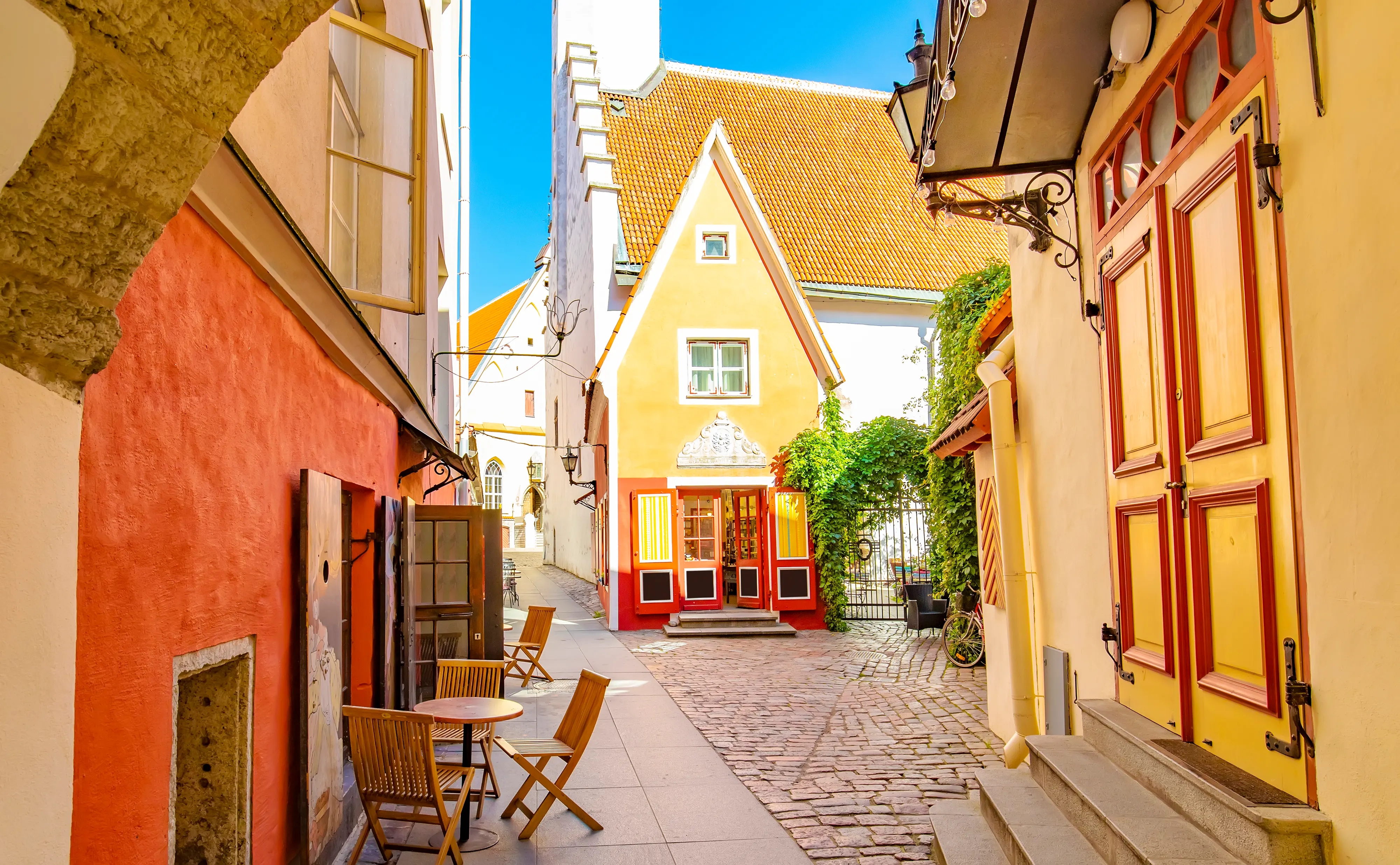We start the day with tea on our terrace overlooking the Mediterranean Sea and the Isle of Malta. After breakfast, we get to work. As travel writers, photographers, and hotel scouts, we have the privilege of working from anywhere, as long as we have our trusty laptops and a reliable internet connection.
The first order of business is to watch a travel video about Estonia. We are traveling there on assignment in late summer. Then, we head to our laptops, check our email, and submit our latest assignment about beaches in Malta and Gozo. The manuscript is emailed to the editor of an American travel booking site. We did the live research on the beaches over the past year.
Next, we pack and head out for a four-day press trip to Sicily, 60 miles north, across the Mediterranean Sea. We take a commuter ferry to Malta and then a seagoing ferry to Sicily. On arrival in Catania, we are met by a car and driver who brings us to a remote luxury spa and resort on Sicily’s west coast. While there, we will enjoy all the resort has to offer. This trip is research for an assignment and a big part of our digital nomad life.

What is a Digital Nomad?
Digital Nomad—it’s a term getting lots of press these days. A digital nomad is a person who works remotely using a computer and an internet connection. They have the freedom to work from anywhere in the world, allowing for a flexible schedule and the ability to travel while still earning an income. Digital nomads can work freelance or for a company they own; their work is not tied to a physical office.
Why We Chose to be Digital Nomads
We are digital nomads. Mary has been at it for over nine years, and Kevin has two years as a digital nomad. We both have Digital Nomad Residency status in Malta.
Our digital nomad lifestyle offers many benefits, making it ideal for us as travel writers, photographers, and hotel scouts. We have the freedom to work from anywhere in the world. Our flexible schedule allows us to travel when we choose or stay home in our village and enjoy life in the Mediterranean.
As digital nomads, we enjoy a lower cost of living. We live in and travel to less expensive areas, such as the island of Gozo in the Republic of Malta. Our cost of living is less than half of our US living expenses. When we travel, we are free to immerse deeply in a location. For example, last year, we spent eight weeks in Bulgaria.
Additionally, this lifestyle offers opportunities for personal growth, cultural immersion, and networking with like-minded individuals worldwide. Overall, the benefits of a digital nomad life are numerous and have led to a fulfilling and exciting life.

Who Are Digital Nomads?
Digital nomads come from all walks of life; there is no one-size-fits-all answer to what kind of person becomes a digital nomad. However, they share a common trait: the desire for location independence and the freedom to work anywhere worldwide.
Some digital nomads are retirees looking to travel, experience new cultures, or try out a potential ‘retirement abroad’ destination. Others are young professionals looking to escape the 9-5 grind. Freelancers, entrepreneurs, and remote workers are also common types of digital nomads. They may work in various fields, such as software development, writing, design, marketing, etc.
Digital nomads may be single or have families and may have a variety of educational backgrounds and skill sets. However, they are typically self-motivated, independent, and adaptable. They are also tech-savvy and comfortable using digital tools to communicate and collaborate with clients and colleagues worldwide.
Digital nomads are a diverse group of people who share a passion for travel, adventure, and the freedom to work on their own terms.
What is Needed to Become a Digital Nomad?
To become a digital nomad, you need a few things. First, you need a skill set that allows you to work remotely, such as writing, design, programming, or marketing. You will also need a reliable internet connection, as most digital nomads work online. You will also need a laptop or computer, a smartphone, and other technology to stay connected with clients and colleagues.
Aside from the technology, you will need to consider your living arrangements. Whether that means a coworking space or a home office, you need a comfortable and functional workspace. Additionally, you will need to think about where you will live and how you will support yourself. Some digital nomads live in less expensive areas to save money. In contrast, others prefer to travel to new locations and experience different cultures.
Finally, depending on where you plan to live, you must consider things like health care, banking, and visas. Some countries offer digital nomad visas, which allow you to live and work in the country for a certain period of time. If you plan to live abroad, you may also need to set up a bank account and obtain health insurance. Each country will also have its own rules about taxes. You may need to consult a local professional on this topic. These factors require careful consideration and planning before embarking on a digital nomad lifestyle.

What Countries Are Open to Digital Nomads?
In recent years, many countries have recognized the growing trend of digital nomads and have started offering special visas to attract them. These visas allow digital nomads to live and work in the country for a specific period of time, usually up to a year or more. Here are a few of the countries that offer Digital Nomad visas:
1. Estonia: Estonia was one of the first countries to introduce a special visa for digital nomads. The visa allows people to stay and work in Estonia for up to a year. To be eligible, applicants must have a monthly income of at least €3,504 and have health insurance.
2. Barbados: In 2020, Barbados introduced its 12-month Welcome Stamp Visa. The visa allows people to live and work remotely from Barbados for up to a year. Applicants must earn at least $50,000 per year to be eligible.

3. Portugal: Portugal introduced a special visa for remote workers in 2021. The visa allows people to live and work in Portugal for up to a year. To be eligible, applicants must have a monthly income of at least €1,200 and have health insurance.
4. Costa Rica: Costa Rica introduced a special visa for remote workers in 2021. The visa allows people to live and work in Costa Rica for up to a year. To be eligible, applicants must have a monthly income of at least $3,000 and have health insurance.
5. Mexico: Mexico has been a popular destination for digital nomads for many years. While it doesn't have a special visa for remote workers, it's relatively easy to enter and stay in Mexico for up to 180 days as a tourist.
6. Malta: Malta requires an income of $42,000, leased housing for one year, and health insurance for one year. Family members may also come along with the principal applicant. The visa is valid for one year and renewable annually for three additional years.
Many countries offer digital nomad visas to attract remote workers. While researching this article, I came across over 60 such countries, and it appears that new countries are adding these visas almost daily.
Suppose you are interested in pursuing the life of a digital nomad and have a particular country in mind. In that case, you should search the internet to determine if your desired country has a digital nomad program and what the requirements are. I could not find an official website that provides a list of countries with digital nomad visas. Still, there are many articles written by individuals that you can refer to for guidance.

Conclusion
We love our life as digital nomads. We have left behind the high cost of living in the US and traded it for a low-cost but much-improved lifestyle in the Mediterranean. We eat better, have a full social life, and are healthier than ever. We travel to our bucket list destinations, then earn money and free travel by writing, photographing, and making videos.
Why not join us in this wonderful retirement life?
